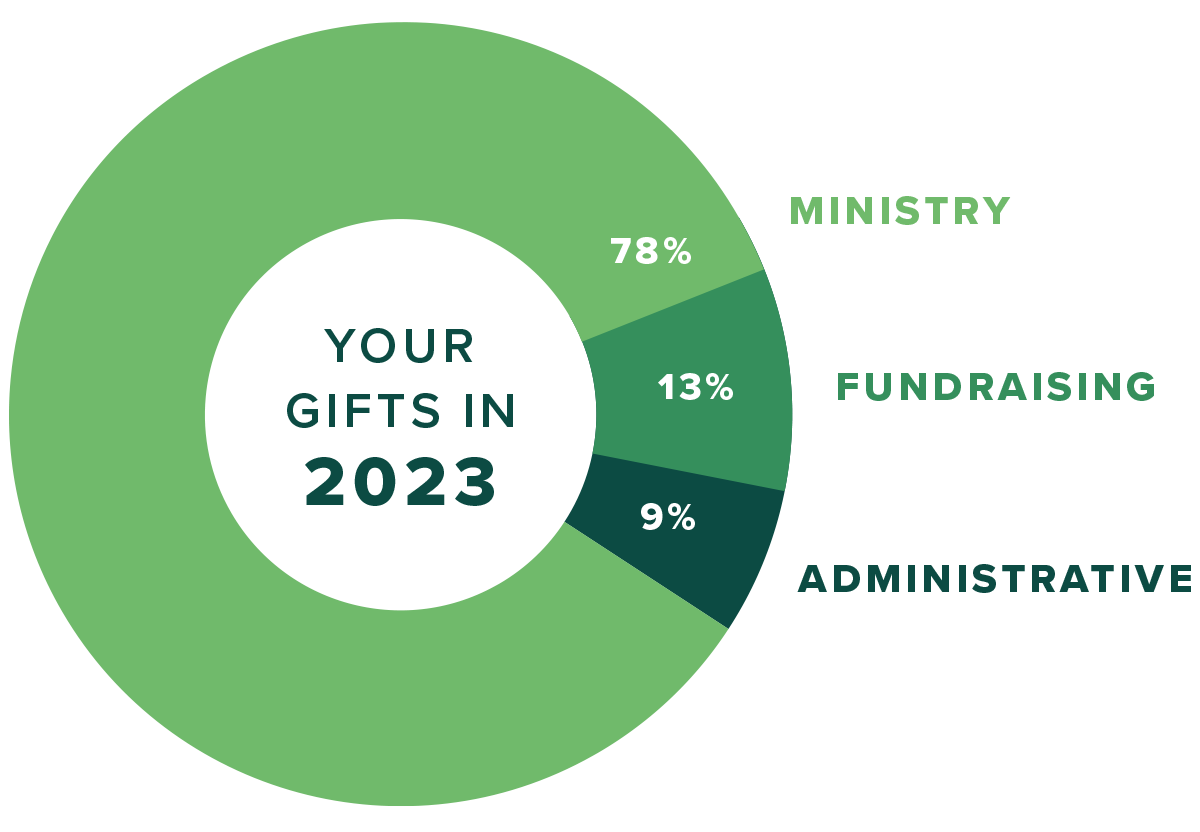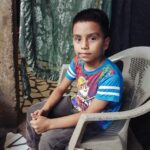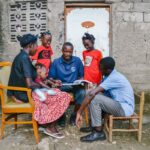Youths in Kenya Use the Art
Youths at a Hope Center are taking to the stage to spotlight and combat problems in their community.

The Hope Center hired Bob to train the students in acting.
When Neema Hope Center introduced the drama club, most youths were excited to join because it was a new and exhilarating experience that they wanted to try after having seen it in schools.
Neema is in Kakoneni, a village in Malindi, Kenya, where such experiences are often out of reach for kids living in poverty.
“When our teacher told us that the drama club was being introduced, I was so excited,” says Peter, 17. “I have always wanted to act, and I was looking forward to training and finally being an actor in the future.”
After the youths signed up to join the club, the Hope Center hired Bob, who has a background in film, theater, and scriptwriting, to train them.
Sporting cargo pants, T-shirt and sunglasses, Bob is relaxed and polite, yet speaks with the charismatic clarity of a trained actor.
The center also bought props for the kids to use during training.
“The idea of introducing this new skill was birthed by the youths,” says Benjamin Mwanyule, the Hope Center Director.
“We asked for ideas on what they wanted to learn at the center and most suggested drama and art. So, we decided to begin by introducing acting, and they loved it.”
The teens started by getting scripts from Bob and learning them before the actual acting. After acting out a few skits, each member of the club found their niche.
Youths Take the Lead
The youths then began sharing ideas for topics they would love to dramatize. They shared their ideas with their teacher Bob, and they developed scripts and storylines for different topics.
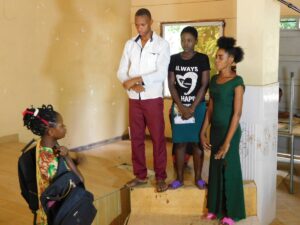
The students practice a skit.
Among the topics the teens suggested were drug and substance abuse, the effects of child labor, teen pregnancies, early marriage, crime, and child neglect.
“When I heard of the topics they had suggested, I was impressed,” Benjamin says.
“These issues are slowly but surely eating away at our community, and the kids are the victims.
“Despite talking to the kids, their parents, and the community, I felt that my voice was becoming too common. So, I was hopeful about this new way of communication through the arts.”
Every Saturday afternoon, the group meets to practice their lines and act. The group performs plays at the Hope Center where kids, parents, and people from the community are invited to watch.
The church veranda serves as the stage. Blue plastic chairs are arranged to the west of the church and spread out under the trees where the audience sits as they wait for the play to begin.
Drama and Real Life
Amina, 17, says the plays are not only helping her prepare for her dream of becoming an actress, but are also helping her better understand issues in the community.
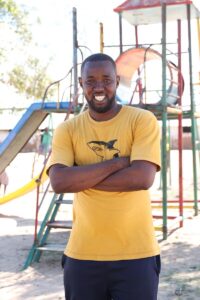
Benjamin Mwanyule is the Hope Center Director.
“When acting, I entertain others,” she says. “But I also know that art speaks to me first before it speaks to others. I have to master my lines, and in mastering them, I internalize them, too.
“Other kids at the center look up to me as an actor, so I have to set a good example. Fair to say that acting helps to keep me in check.”
She also says she has learned that art mirrors life, and she hopes that in the near future they will have plays depicting the good changes experienced over time.
“Bob helped us understand why we do what we do,” Amina says. “He told us that art depicts what a community is like. And it is in showing the community what they are like that we get them to change their ways.
“So as much as my heart breaks to see all these vices in our small community, I am confident that the more the youths speak against them, the higher the chances of change.”
Embracing Art for Change
“Art is a powerful tool that has been overlooked by most people in this community for a long time now,” says Bob.
“It is perceived as old school, yet our culture has art deeply embedded in it. This is why I am a strong believer that art speaks when voices can no longer be heard.”
Benjamin hopes that through acting, Kakoneni will experience positive change.
“I am confident that the future will be better,” he says. “The youths are the leaders of tomorrow, and to have them seek ways of helping deal with the menace that is eating up our community is a great validation that the work of the Child Champions and the Hope Centers
Give to the OneChild Partners Fund to help us open community-changing Hope Centers in more hard places like Kakoneni.
We are accountable to the children we serve AND to our donors.
Our accountability to our donors is one of our highest priorities. Our goal is to use the funds entrusted to us as wise stewards. To do this requires continued monitoring of our fund distribution. OneChild is also a member in good standing with the Evangelical Council for Financial Accountability (ECFA)
